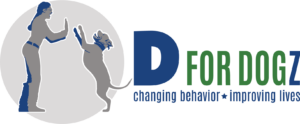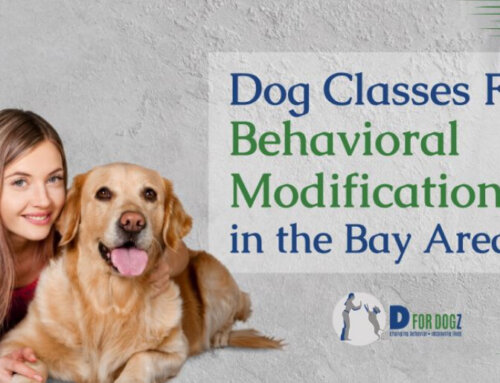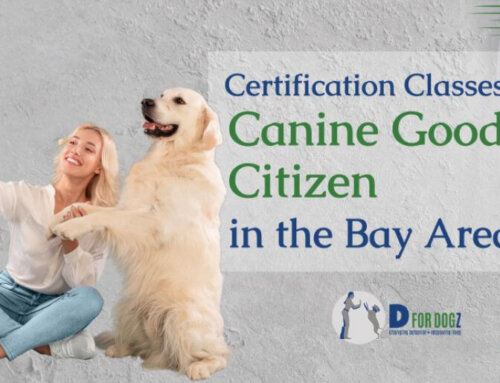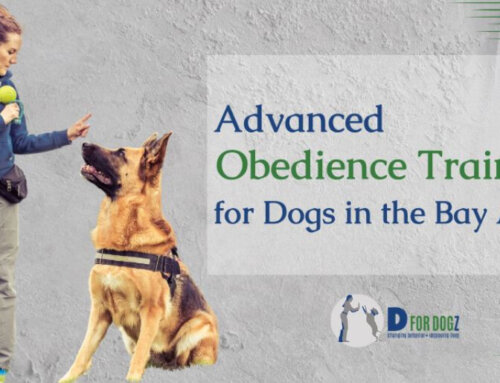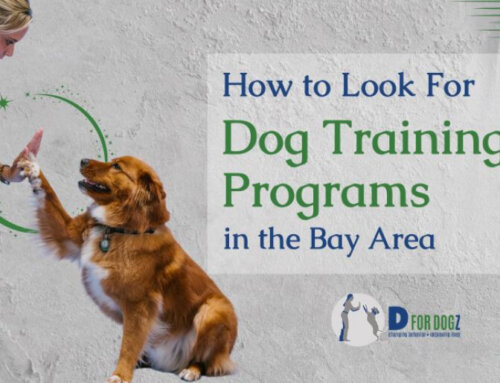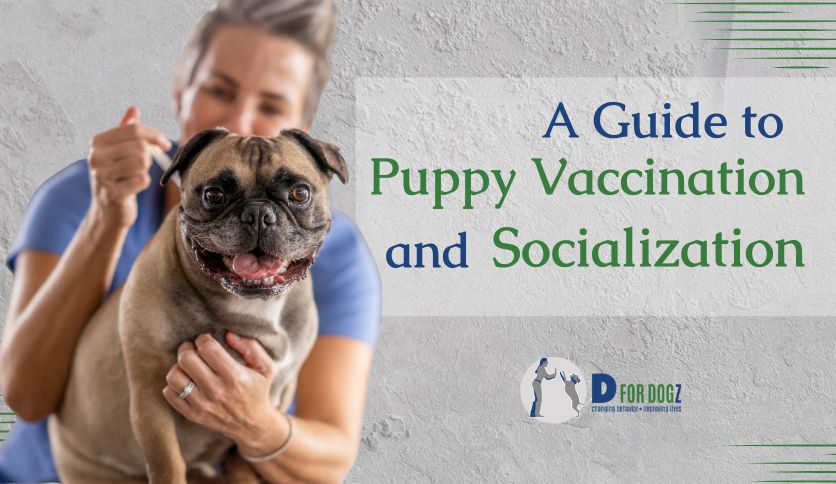
The initial weeks of a puppy’s life are foundational, shaping their future behavior and health. Early socialization—exposing puppies to various environments, people, and animals—is pivotal for developing well-adjusted adult dogs. Concurrently, safeguarding against infectious diseases through timely vaccinations is equally critical. These parallel paths of socialization and vaccination are not mutually exclusive but are intertwined strategies that support each other.
This guide draws on the expertise of RK Anderson, a respected figure in veterinary medicine, to illuminate the importance of integrating vaccination schedules with socialization efforts, ensuring puppies grow into friendly, healthy adult dogs.
Key Takeaways
- Early socialization and timely vaccinations are fundamental in shaping a puppy’s health and behavior, ensuring they grow into well-adjusted, sociable adult dogs.
- The critical period for puppy socialization is between 3 to 14 weeks, highlighting the importance of exposing puppies to diverse environments, people, and animals within this window.
- Implementing a structured vaccination schedule beginning at 8 to 9 weeks of age is crucial for protecting puppies against infectious diseases while they engage in socialization activities.
- Collaboration between veterinarians, dog trainers, and puppy owners is essential in providing puppies with the necessary experiences and care to thrive in their environments and build strong, lifelong bonds with their human companions.
The Role of Vaccinations in Puppy Socialization
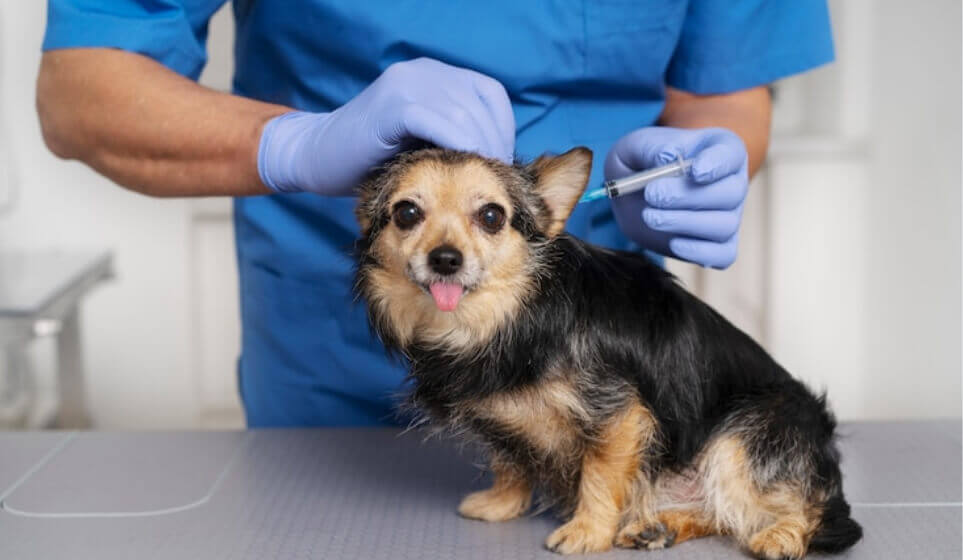
Image Source: Freepik
Vaccinations are pivotal in a puppy’s early life. They enable them to safely engage with diverse environments, animals, and people, which is crucial for their social development. The recommended vaccination schedule typically begins at 8 to 9 weeks, with follow-up doses spaced three to four weeks apart, concluding around 16 weeks of age.
This schedule protects puppies from common infectious diseases such as parvovirus, distemper, and hepatitis, which they can be exposed to during socialization activities. By adhering to this schedule, owners can ensure their puppies are adequately protected, enabling them to participate in socialization classes and public outings with reduced disease risk.
Vaccinations serve as a safeguard, allowing puppies to explore and learn in various settings while maintaining their health.
| Vaccination | Purpose | Initial Dose Age | Follow-up Doses |
| Parvovirus | Protects against a highly contagious virus causing gastrointestinal illness | 6-8 weeks | 10-12 weeks, 14-16 weeks |
| Distemper | Protects against a virus causing respiratory, gastrointestinal, and nervous system symptoms | 6-8 weeks | 10-12 weeks, 14-16 weeks |
| Adenovirus (Hepatitis) | Protects against liver disease caused by canine adenovirus | 6-8 weeks | 10-12 weeks, 14-16 weeks |
| Rabies | Protects against rabies, a fatal viral disease | 12-16 weeks | One year later, then every 1-3 years |
| Leptospirosis | Protects against leptospirosis, a bacterial disease affecting kidneys and liver | 8-12 weeks | 2-4 weeks later, annually |
| Bordetella | Protects against kennel cough, a highly contagious respiratory disease | 8-12 weeks | Annually, or as recommended |
| Influenza | Protects against strains of canine influenza virus | 6-8 weeks | 2-4 weeks later, annually |
Balancing Socialization and Health Risks

Image Source: Pexels
The Importance of Early Socialization
The American Veterinary Society of Animal Behavior (AVSAB) emphasizes the significance of initiating puppy socialization early and advocating for participation in puppy classes before completing the full vaccination series.
This approach is rooted in the understanding that the developmental benefits of early socialization significantly outweigh the risks of potential infectious diseases in a controlled environment. Early socialization is crucial for preventing behavioral problems and fostering well-adjusted adult dogs.
Vaccinations and Socialization Timeline
Veterinary advice now suggests starting puppy socialization classes as early as about nine weeks of age, contingent upon the puppy’s initial vaccinations at least seven days prior. This recommendation aligns with the need to protect against diseases like Distemper and Parvovirus while capitalizing on the critical socialization window.
Ensuring all puppies in the class are healthy and up-to-date on vaccinations and maintaining a clean and disinfected environment are vital measures to mitigate health risks.
Mitigating Health Risks in Socialization Settings
Several practical measures are recommended to minimize the risk of disease transmission during the socialization phase. These include keeping puppies off the ground in public places until their vaccination series is complete, using pet carriers or strollers for transport, and selecting well-managed puppy classes that adhere to stringent health and safety protocols.
These strategies enable puppies to safely experience a broad range of social stimuli, facilitating their development into sociable and well-adjusted dogs.
With careful management and adherence to recommended health precautions, the risks associated with early socialization can be effectively minimized. The consensus among veterinarians and animal behaviorists is clear: the advantages of early, well-managed socialization classes significantly outweigh the potential health risks when these risks are appropriately managed.
Implementing a Socialization and Vaccination Program
Steps for Veterinarians and Puppy Owners
For Veterinarians:
- Educate Owners: Provide puppy owners with comprehensive information on the importance of vaccinations and early socialization. Highlight the critical socialization window and the recommended vaccination schedule between 3 and 14 weeks of age.
- Develop a Vaccination Schedule: Create a tailored vaccination plan for each puppy from 6-8 weeks of age. Ensure it covers core vaccines and assesses the need for non-core vaccines based on the puppy’s environment and lifestyle.
- Promote Socialization Classes: Encourage participation in puppy socialization classes after the first set of vaccinations. Offer recommendations for reputable classes that follow safe and hygienic practices.
- Offer Socialization Opportunities: Organize puppy socialization sessions within the clinic. This provides a controlled environment where puppies can interact under professional supervision.
- Follow-up: Schedule regular check-ups to ensure the puppy’s vaccination series is completed on time and to address any behavioral issues early.
For Puppy Owners:
- Consult Your Veterinarian: Before starting any socialization or vaccination program, discuss your puppy’s health status and vaccination schedule with your vet.
- Begin at Home: Start socializing your puppy by exposing them to different sights, sounds, and handling experiences in a safe and controlled manner.
- Choose the Right Time: After the first set of vaccinations, look for socialization opportunities outside, considering the balance between exposure and protection.
- Be Proactive: Attend all scheduled veterinary appointments for vaccinations and health check-ups to ensure your puppy’s health and readiness for socialization.
- Observe and Adapt: Monitor your puppy’s behavior and health after socialization sessions and consult your vet if any concerns arise.
Tips for Selecting Safe and Effective Puppy Socialization Classes
- Research and Recommendations: Start with recommendations from your veterinarian, experienced dog owners, and reputable dog training organizations.
- Check Credentials: Look for classes led by certified trainers with experience in puppy training and behavior. Professional affiliations and certifications can be a good indicator of quality.
- Class Size and Structure: Opt for classes with a limited number of puppies to ensure individual attention and minimize health risks. Classes should have a structured curriculum that focuses on positive reinforcement techniques.
- Health and Safety Protocols: Ensure the class requires proof of vaccination for all participating puppies and adheres to strict cleanliness and disinfection protocols.
- Observe a Class: Before enrolling, ask to observe a class to assess the environment, the instructor’s approach, and how the puppies are handled and interact.
- Post-Class Support: Check if the program offers support or advice for puppy owners outside of class hours. This can be invaluable for addressing concerns as they arise.
By following these steps and considerations, veterinarians and puppy owners can effectively implement a socialization and vaccination program that supports puppies’ healthy development and well-being, laying the foundation for a lifetime of positive behaviors and social interactions.
Addressing Concerns and Special Cases
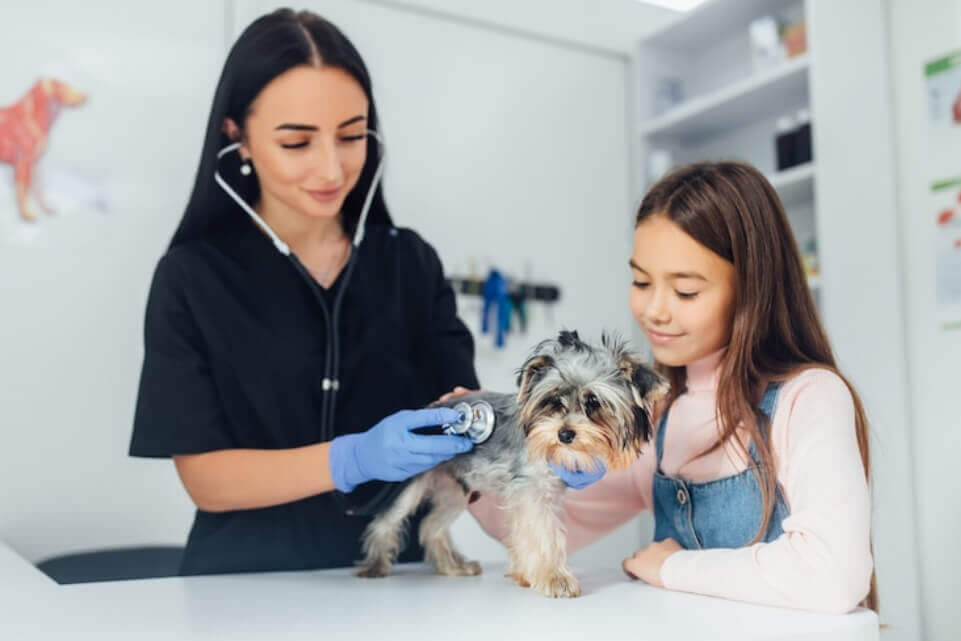
Image Source; Freepik
Handling Special Circumstances That May Require Delaying Socialization
Puppy socialization is critical to young dogs’ development, ensuring they grow into well-adjusted adult dogs. However, there are special circumstances under which socialization might need to be delayed. These can include health issues, incomplete vaccination series, or extreme behavioral fears. Here’s how to navigate these situations:
- Health Concerns: If a puppy shows signs of illness, it’s crucial to prioritize their health and delay socialization activities until they fully recover. Consult with a veterinarian to understand the illness’s implications and get a timeline for when socialization can safely resume.
- Incomplete Vaccinations: Balancing the risk of disease exposure with the benefits of early socialization is essential for puppies who haven’t completed their vaccination series. Limit interactions to controlled environments and fully vaccinated, healthy dogs in such cases.
- Behavioral Issues: Puppies exhibiting extreme fear or aggression may not be ready for typical socialization classes. These puppies can benefit from one-on-one sessions with a professional dog trainer or behaviorist who can provide tailored guidance for safely introducing new experiences.
Continuing Socialization Efforts Safely Before Full Vaccination
The period between bringing a puppy home and completing their vaccination series represents a crucial window for socialization that shouldn’t be entirely missed. Here’s how to continue socialization safely:
- Controlled Environments: Choose safe, controlled environments for socialization. This can include playdates with known, healthy, fully vaccinated dogs in a private yard, or carrying the puppy in public places without allowing them to touch the ground.
- Socialization at Home: At home, expose your puppy to various stimuli, such as different sounds (vacuums, doorbells), objects (umbrellas, bags), and people of different ages and appearances. This helps the puppy become accustomed to a wide range of experiences.
- Virtual Socialization: Utilize technology by exposing your puppy to sounds and sights through videos. This can help acclimate them to the diverse stimuli they’ll encounter.
- Puppy Classes with Safety Protocols: Enroll in puppy classes that require proof of vaccination for all participants and adhere to strict cleanliness standards. Some trainers offer puppy classes for dogs amid their vaccination schedules, focusing on safe socialization.
- Gradual Exposure: Gradually expose your puppy to new experiences, monitoring its reactions closely. Positive reinforcement and patience are key. If the puppy shows signs of stress or fear, take a step back and proceed at a pace it is comfortable with.
In all cases, communication with a veterinarian is essential to balance socialization and safety. They can provide personalized advice based on the puppy’s health, vaccination status, and behavioral needs. Taking a thoughtful, cautious approach makes it possible to provide puppies with the socialization they need to thrive, even in the face of challenges or particular circumstances.
Conclusion
The essence of puppy care lies in the harmonious blend of vaccination and socialization, shaping a path for puppies to grow into well-adjusted, healthy dogs. Drawing insights from RK Anderson’s expertise, this guide emphasizes starting vaccinations at 8 to 9 weeks and integrating socialization early on, striking a balance that mitigates health risks while fostering essential social skills.
The commitment to this dual approach is pivotal for veterinarians and puppy owners alike. It ensures puppies thrive in their environments and cultivate strong bonds with their human companions. In doing so, we contribute to a society enriched by the presence of socially adept and physically healthy dogs, underscoring the collective responsibility we bear in nurturing the next generation of canine companions.
At D for Dog Training, we’re committed to helping your furry friends thrive from the very beginning. Dive into our “Puppy Power” program, designed to lay a strong foundation for your puppy’s growth and development. Discover the perfect blend of socialization and training techniques to ensure your puppy becomes well-behaved, sociable, and happy. Start your journey to a harmonious pet relationship today
About the Author: Kaajal Tiwary
Kaajal (aka “KT”!) loves puppies and is dedicated to getting new puppy guardians off on the right paw and guiding her students through the tough early days of owning a dog. Her goal? Transforming each bundle of raw puppy energy into the perfect adult companion.
